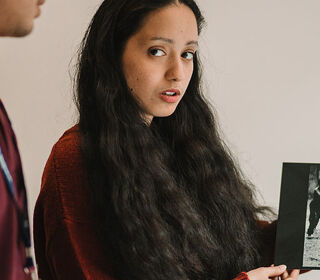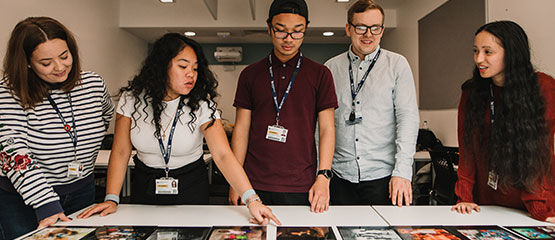
Blog

If you'd like to work with a variety of young people (and possibly with some adults) and have a passion such as a love of animals, art, or history that you want to share with others, becoming an Education Officer could be for you. It's a great role if you want to work in education, but outside the formal setting of a school or college.
What does an Education Officer do?
Education Officers (or Education Advisors) work at organisations such as zoos, museums, art galleries and other attractions (even some theme parks have an education team!). They work closely with groups of people (such as school children or society groups) that come onto site for educational trips, to promote the organisation and build knowledge and understanding around what that organisation does. Learning outside the classroom can be a great way to engage young people who struggle in the classroom to understand and apply their learning in a real-world context, so the role of Education Officer can be very rewarding as you see children gain confidence and enthusiasm for learning.
Roles and responsibilities
Key skills and traits required include:
- Excellent communication skills
- Good organisational abilities
- Confident public speaker
- Experience of working with children
- Passion for specific topics relating to the organisation (i.e. conservation, animal welfare etc. if you want to work in a zoo or wildlife park; art and history if you want to work in a museum or art gallery)

A day in the life of an Education Officer
No two days are the same, and where you work could dictate what type of work you could be asked to do. For example, if you were an Education Officer at a zoo, you could be: liaising with schools to organise day trips to the zoo; putting together programmes of age-appropriate and curriculum-related activities, such as a ‘meet the animals’ session; preparing information about habitats, animal life cycles, or feeding patterns; delivering tailored tours of the zoo; working with volunteers, and so on. You could also be working with groups on the day to help them learn and inspire them to get more involved in animal welfare or conservation.
How to become an Education Officer
The specific requirements may vary depending on where you would like to work, but the key thing is to show experience and knowledge of working with children, and a passion for what the organisation does. Some students on our education degrees have completed placements in this type of role at historical attractions in order to get more experience in this area. Take a look at Jess's placement experience.
Some roles may require a teaching qualification, such as a PGCE, as well as experience of working with children and young people.
As you will be working with children, you are likely to need a DBS check.
Education Courses
Find out more about our courses